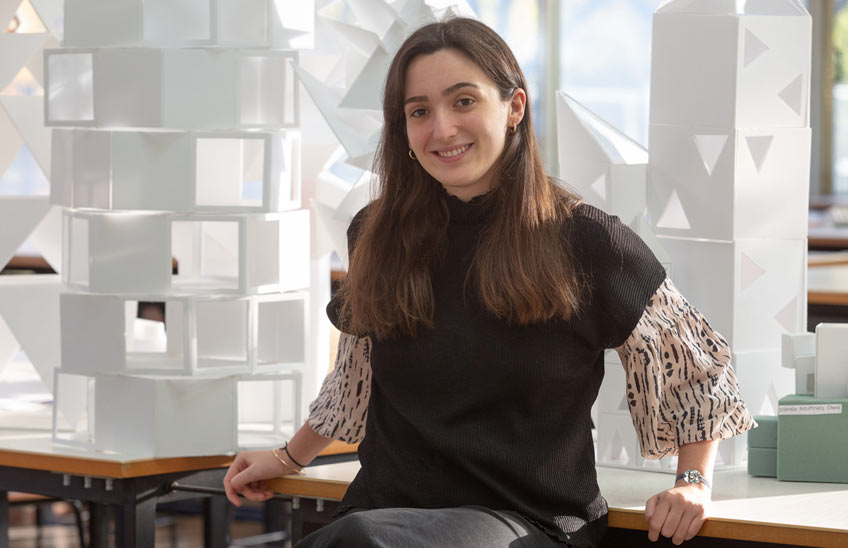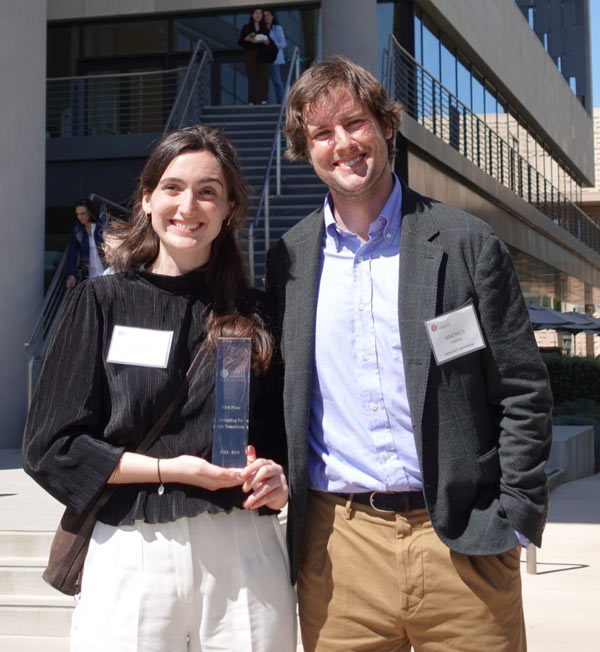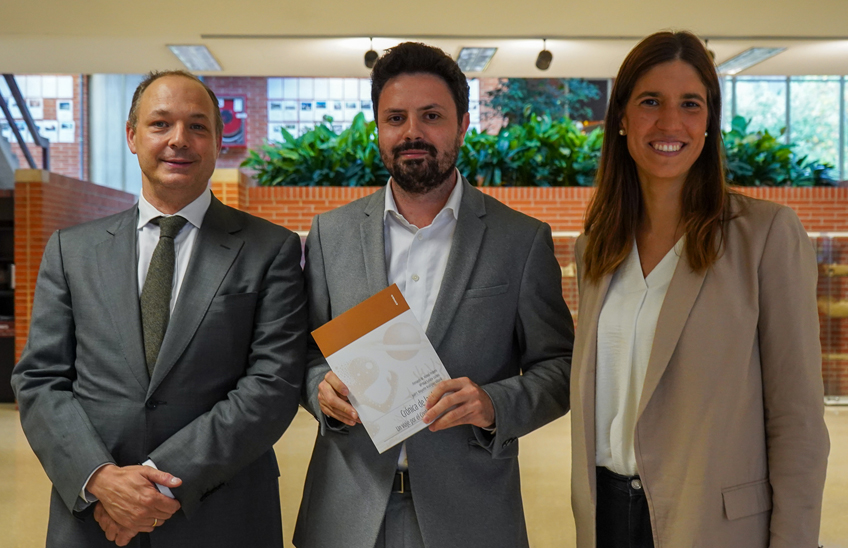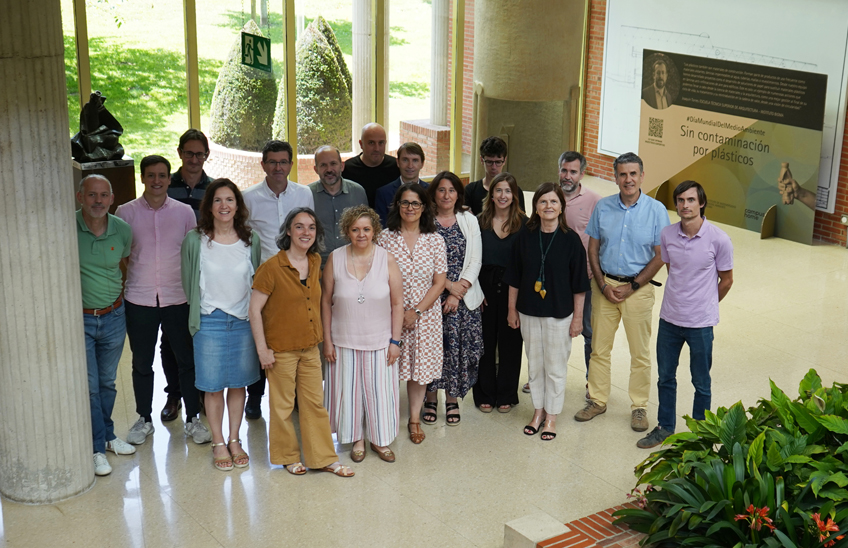University graduate, first Spanish woman to win a Stanford University contest design
Belén García López's project , 'Asterisk', is a modular game designed to offer an adaptive treatment for dementia.

FotoCedida<br>/Belén García López, graduada en Diseño por la Universidad de Navarra, es la creadora de ‘Asterisk’.
11 | 04 | 2024
Belén García López, who graduated in designDegree in 2023 from the University of Navarra, never imagined that the product created for her end-of-year work would cross the pond to win the first award in a contest organized by Stanford University's Longevity Center. "I'm very excited," she assures. After weeks of preparing for the finals, on April 9, she competed with 7 other projects and hers, 'Asterisk', was the winner.
The topic of this edition of the Stanford Center on Longevity Design Challenge 2023-2024 has been Designing for Life Transitions. 'Asterisk', the project by Belén García, consists of a modular game designed to offer an adaptive treatment for dementia, working on cognitive stimulation and fine motor skills.
'Asterisk' has been the only physical finalist project (the others were all digital) and was chosen for this last phase among 228 proposals submitted by more than 100 universities from 34 countries. It is also the 11th edition of the competition and the first in which a Spanish university has participated.
"Throughout the Degree at design I realized several projects related to the game. It is usually considered something for children, but I think there is a need to create games adapted for the elderly," explains the designer. After months of research and partnership with a Solera Asistencial day care center in Pamplona (Navarra), she began to shape 'Asterisk' with the help of her tutor and professor at the University of Navarra, Andrés Tabasco. School of Architecture at the University of Navarra, Andrés Tabera.
The professor assures that what is intended with the final projects of Degree is that they are "the best cover letter for the employment rate of the graduates in design". "Whatever happened in the final, Belén had to be very proud and now that she has won, even more so. She is an example of productivity and initiative," says Andrés Tabera. "I have come this far thanks to the motivation of my teachers, it is always hard to get out of the comfort zone," says Belén García.

Belén García López and her tutor and professor of the School of Architecture of the University of Navarra, Andrés Tabera, at Stanford with the first award of the contest.
Photo: loaned.
Designing an inclusive future for seniors
The result of this project is the sum of many activities and encounters promoted by the designer herself within the university ecosystem. One of the works related to longevity that she carried out when she was a student, 'Arcadia', led her to win Ikea's 'Next Gen Seniors' competition. "We proposed as a team a outline of plants to convert disused or abandoned buildings into residences of the future open to the city," explains Belén García. In addition, she also participated in the University of Navarra's innovation competition, Inn BIG Challenge. She came in second place with her team Delta+ and the project #WhenITurn100, which consisted of a multigenerational social listening platform in which users of all ages could give their opinions, reflect and co-design the future of centenarians. Precisely, thanks to Innovation Factory, the entrepreneurship service of the University of Navarra, she discovered the Stanford Center on Longevity contest in which she won result .
"At final, the opportunity to present the project 'Asterisk' in an international competition means being able to disseminate, make visible and tangible part of the process of research with other colleagues and social actors interested in designing an inclusive future, also for the elderly," concludes Andrés Tabera.


